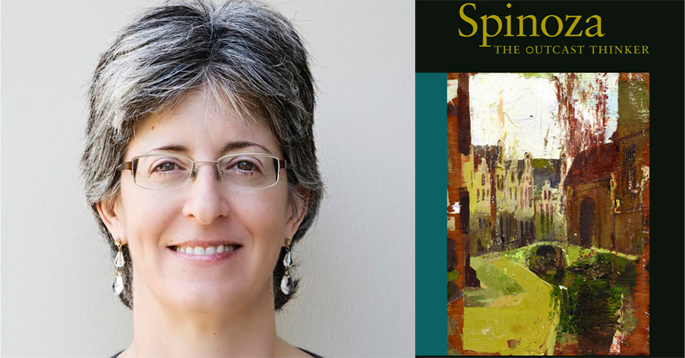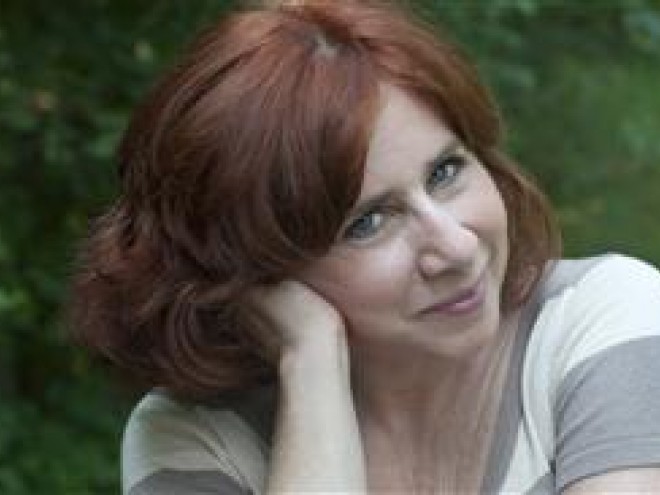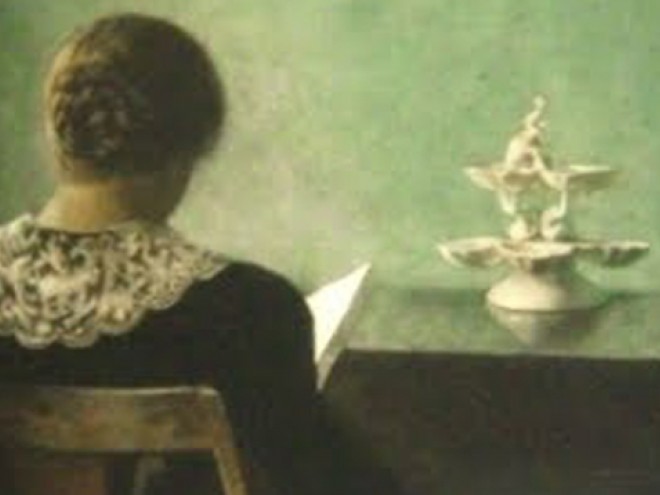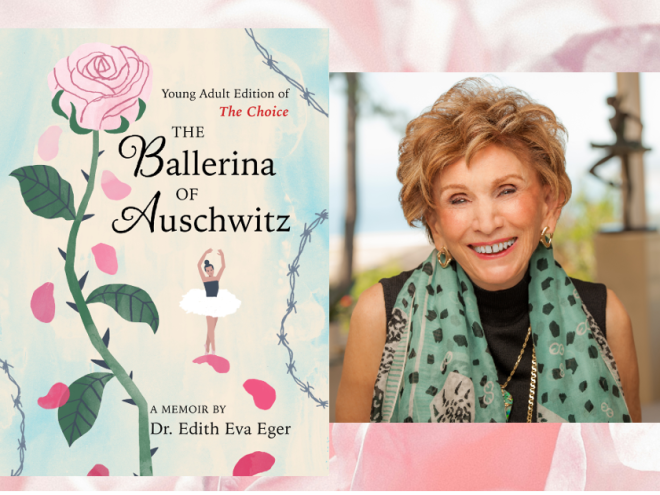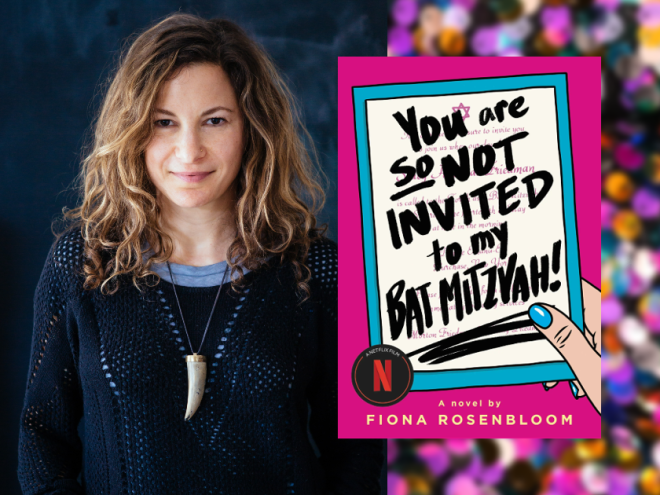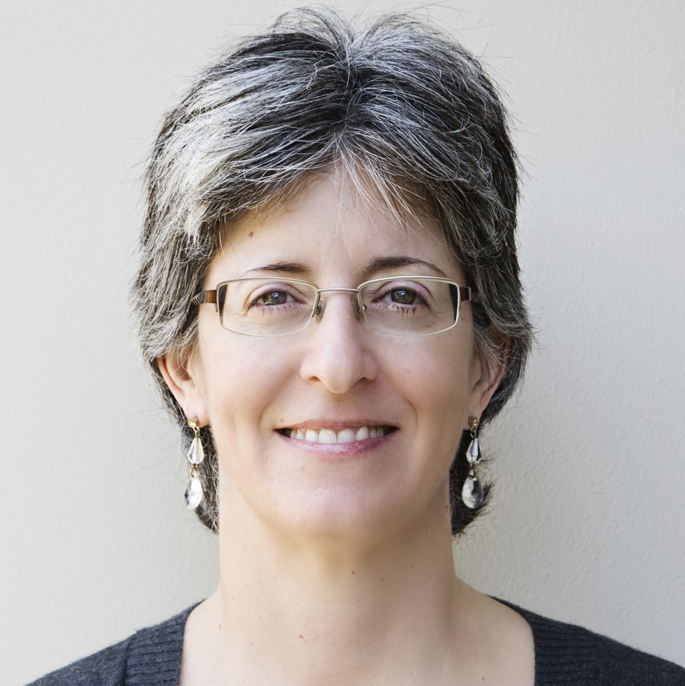 Devra Lehmann is the author of Spinoza: The Outcast Thinker, winner of the 2014 National Jewish Book Award in the category of Children’s and Young Adult Literature.
Devra Lehmann is the author of Spinoza: The Outcast Thinker, winner of the 2014 National Jewish Book Award in the category of Children’s and Young Adult Literature.
Michal Hoschander Malen: Why did you choose Spinoza as the subject for your young adult biography?
Devra Lehmann: A long time ago, I was captivated by what I heard about Spinoza in my Jewish history class at an Orthodox girls’ high school. Actually, most of what I recall is my teacher’s hushed and obviously uneasy tone, which reminded me of the way my older relatives would whisper about cancer. It took a long time for me to follow up on Spinoza, but when I did, I was hooked. If you don’t take Spinoza’s genius into consideration, I have a lot in common with him. My forebears, like Spinoza’s, underwent horrific suffering because of their Jewish identity, and I grew up, like Spinoza, in a community that triumphantly asserted its religion and culture in a more hospitable, but foreign land.
Most importantly, in the questions that Spinoza raised about religion I found many of my own struggles. Even setting aside the content of those questions, which Spinoza presents in the Theological-Political Treatise far better than I can — I was intrigued simply by his having asked them and by the way they were received during his lifetime. One of our earliest sources describes how Spinoza, as a teenager in his community’s religious school, quickly discovered his rabbi’s inability or unwillingness to address his questions. As a result, Spinoza simply stopped saying anything in class but kept a record of his questions to pursue on his own. Perhaps because I have spent almost all my life in classrooms, that description resonated with me. Although I have mostly fond memories of my religious schooling, I distinctly remember that same feeling of futility when I tried to raise concerns with some of my teachers. And I frequently saw the same thing happening many years later, when I was observing classes and conducting interviews with students and teachers as part of my doctoral research in Jewish education.
So it was really my sense of a personal connection that got me interested in writing about Spinoza. The young adult bit came later. My original goal, in fact, had been to write a play based on Spinoza’s life after his excommunication, and I first undertook a young adult biography as a kind of warm-up exercise, a way to pull my research and my ideas together. But then that little warm-up took on a life of its own, and I’m happy with where it has led me.
MHM: You did a remarkable job translating the complexities of Spinoza’s life and philosophies into language that young people can access and understand. What are some of the issues you faced in meeting that challenge?
DL: Thank you for the compliment. This is where my not being a genius is a distinct asset. Even before sitting down to write, I had to translate Spinoza’s ideas into simple, direct language just so that I could make sense of what I was reading. This was true as well for those Big Ideas that I’d often heard about — and perhaps, I’ll confess, even written about in college papers with all the appropriate jargon — without ever really grasping. Just why, for example, was Descartes’s mind-body split so very critical in the history of Western thought? (And why should I care?) Once I began spelling out answers to these sorts of questions just for my own understanding, it wasn’t so hard to create a written text suitable for young adults.
It was where I sensed a divide between myself and my audience that I had the most difficulty. For instance, I didn’t always know the degree to which I could assume a young reader’s familiarity with some of the background — the Spanish Inquisition, the Reformation, Galileo, Descartes. On the one hand, I didn’t want to belabor issues that my readers would know well, but on the other hand, I didn’t want to leave out information that my readers would lack but need to know. Often my students and my children helped me figure out the balance. For the most part I aimed for a friendly “hi, there — I’m here to jog your memory, because you’ve probably already heard of this” approach. I’m sure I didn’t always hit it right. But it isn’t a terrible thing to review what you already know, and there’s always Wikipedia for material I left out.
Another major issue was the flow of my narrative. When you’re dealing with sources that are obviously tendentious, potentially unreliable, or simply silent about entire periods in a subject’s life, it is artificial and academically misleading to tell a smooth story. If you’re writing a biography for adults, you’ll generally incorporate into your narrative numerous comments about the biases or limitations of your sources; you might even get into a lengthy discussion about why you have chosen to rely on one source rather than another. But for a younger audience, all that creaky commentary can become a huge turn-off. In an early draft, I discussed the nature of my sources as I used them, and I couldn’t get my own children to read the whole thing. My compromise was to keep the narrative flowing and to leave the more scholarly commentary for my notes section at the back of the book. This means that readers who don’t bother reading the notes will come away with a more simplistic view of Spinoza’s life than I might like, but at least they’ve learned something along the way.
MHM: Spinoza’s story was full of drama, particularly his relationships with his family and with the Jewish community. Was there any part which intrigued you most?
DL: Absolutely. I’m both fascinated and horrified by what Jorge Luis Borges captures in his poem “Spinoza”: “Free from metaphor and myth / He works a hard crystal.” Spinoza literally worked hard crystal as a lens grinder, but his life and his thought were in themselves a kind of hard crystal. Spinoza had a precise, mathematical mind, and he had such confidence in reason that he viewed absolutely everything through its lens. In the Ethics, he attempted to analyze all human emotion and behavior as if they are no different from the “lines, planes, and bodies” whose features and interactions a physicist might chart out. It’s a rather mechanical worldview — and an unsettlingly cold one, especially when you consider that it dismissed romantic love as an obstacle to true happiness. Spinoza’s true happiness can be achieved only by individuals who free themselves from dependence on things beyond their control, and that class of things most certainly includes someone with whom you are in love. Spinoza didn’t make any allowances for the mysterious poetry, Borges’s metaphor and myth, that makes life worthwhile for many of us.
Ultimately Spinoza just didn’t seem to need others in the way that I think (or hope) most people do. I think that this frostiness helps to explain the ease with which he left his family and community behind. Of course, we don’t know what was really going on inside him, either then or later in his life, and we do know that his excommunication prohibited members of the Jewish community from staying in contact with him. But Spinoza’s utter break was entirely in keeping with his rarified personality. In all fairness, I should add that the friends that Spinoza made outside the Jewish community were deeply devoted to him, and that he seems to have had lovely relationships with his landlords. It’s actually this hot-and-cold split in his personality, against the backdrop of his vilification by traditional Europe, that I was hoping to explore in my play.
MHM: Tell us a bit about your research process.
I’m reminded of what my father told me when I turned forty, after I’d already spent much of my life immersed in books. “Congratulations,” he said. “Now you’ll begin to understand the things you are reading.” Whenever I approach a new topic, I feel as though I’m in my pre-forty years as my father characterized them. I read extensively, maybe even a bit indiscriminately, based on a reading list I develop by poking around on the Internet, asking knowledgeable friends, and paying attention to references in material I already have. I plow through the material, but I really don’t understand a lot because I’m unfamiliar with the assumptions and terminology of the subject. So when I’m done with that first round, I read everything all over again from the beginning. And that’s when I turn forty and begin to understand what I’m reading.
That process gives me the overview that I need in order to plan, in the broadest way, where I’ll want to go with my writing. Then, as I work on each chapter, I hone in on the relevant material I’ve already encountered, and I discover all sorts of issues that require further research. Sometimes that filling in of gaps takes the most time. Because of the breezy style in which young adult nonfiction has to be written, at least in comparison with academic work for adults, I doubt that many people would guess how much research goes into it. I can easily spend an entire day studying the material that I distill into a single sentence. It’s especially at this point that I find the Internet indispensable, and I thank my lucky stars for the good fortune to live in this era. I’m old enough to have used a typewriter in college, so I find resources like the Internet Archive nothing short of miraculous.
MHM: Do you think the young people of today have a hunger for or are receptive to additional nonfiction topics like this, areas of history that they may not be familiar with or figures from the past whose names may sound familiar but whose stories they have not heard? There really haven’t been that many published in the past few years. Do you think the success of this book will help open that world up a bit and perhaps make topics such as history and philosophy seem less daunting to this age group?
DL: Like any group of people, “the young people of today” are a varied bunch. Look, we all know that serious young adult nonfiction will never have the mass appeal of Twilight or The Hunger Games. But I’ve worked with kids for almost thirty years in all kinds of educational settings, and I’ve never found a group of kids that won’t go wild over a thought-provoking question. (Is there a point to our existence? Can a law firm tell an employee not to wear a yarmulke or hijab to work? Can we ever truly understand another human being? Should a twenty-year-old from an abusive family be held responsible for his or her crimes?) When those sorts of issues arise in my classes, it reminds me of nothing more than a pack of dogs fighting over a juicy steak.
So yes, I think that there is a huge interest in a lot of nonfiction topics, and especially in the kinds of questions that philosophers ask. Of course, only a small minority will pick up a book about such things of their own volition; perhaps a slightly larger group will pick it up because it relates to a school assignment. But there are definitely kids out there who prefer nonfiction to fiction, and there are certainly many more whose taste for nonfiction can be nurtured. And both groups are completely underserved by what’s now available. The body of young adult nonfiction has grown in the last decade, but it is shockingly small compared to what’s available for younger kids and for adults. I can’t tell you how often I’ve struggled to find accessible material for high school students who are interested in studying a specific topic. The intellectual historian Jonathan Israel was kind enough to read my book and to remark, “If I were a young person reading this it would come as a revelation to me.” I am obviously flattered by the comment, but as a teacher, I also find it haunting. Because of the dearth of nonfiction for young adults, how many budding thinkers are missing out on such revelations?
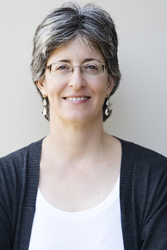 DL: Since many of your readers have influence in the publishing world and others are educators or parents or just people who worry about the next generation, maybe I should mention the desolation I faced when I first tried to get my manuscript published. I knew that getting a book published is a rocky and uncertain affair, and I was prepared to hear that huge swaths of my manuscript needed revision. But nothing prepared me for how thoroughly indifferent my topic would appear to literary agents and publishers. I quickly discovered that the words “young adult nonfiction” in my query letters were like the crosses that were once painted on doors to mark the homes of plague victims. No one even bothered to look at what I had written. I was simply told again and again, by both agents and editors, that there was no market for such a thing. I don’t know what I would have done had I not chanced upon Karen Klockner, my editor, and the rest of the idealistic folk at namelos, whose business model allows them to take on projects like mine. But there aren’t enough nameloses out there. When bottom-line profits consistently trump educational or cultural value, we are all impoverished.
DL: Since many of your readers have influence in the publishing world and others are educators or parents or just people who worry about the next generation, maybe I should mention the desolation I faced when I first tried to get my manuscript published. I knew that getting a book published is a rocky and uncertain affair, and I was prepared to hear that huge swaths of my manuscript needed revision. But nothing prepared me for how thoroughly indifferent my topic would appear to literary agents and publishers. I quickly discovered that the words “young adult nonfiction” in my query letters were like the crosses that were once painted on doors to mark the homes of plague victims. No one even bothered to look at what I had written. I was simply told again and again, by both agents and editors, that there was no market for such a thing. I don’t know what I would have done had I not chanced upon Karen Klockner, my editor, and the rest of the idealistic folk at namelos, whose business model allows them to take on projects like mine. But there aren’t enough nameloses out there. When bottom-line profits consistently trump educational or cultural value, we are all impoverished.
MHM: What are you planning to write next? Can you give us any hints? More biographies? Other genres? What can we look forward to reading?
DL: I’m excited about the idea of writing intellectual history for young adults, and I think that biography is a particularly good way to go about it for my age group. The life of a specific individual provides a coherent and engaging storyline, and it gives me a springboard for leaps into the larger cultural and political scene. I’m in the middle of a biography of Socrates, and I’m thinking about Saint Augustine next. I also have on hold a few chapters that I’ve written for a biography of Doña Gracia Nasi, the sixteenth-century banker who used her considerable wealth and international influence to help fellow Jews escape the Spanish and Portuguese Inquisitions. And I still haven’t forgotten that play I wanted to write!
Michal Hoschander Malen is a librarian and editor of reference books. She is the children’s and young adult section editor at Jewish Book Council.
Related Content:
- Interview with Gavriel Savit, author of Anna and the Swallow Man
- Interview with Laura Amy Schlitz, author of The Hired Girl
- Gabi Gleichmann: On Writing a Fictionalized Account of Baruch Spinoza’s Family
Michal Hoschander Malen is the editor of Jewish Book Council’s young adult and children’s book reviews. A former librarian, she has lectured on topics relating to literacy, run book clubs, and loves to read aloud to her grandchildren.
